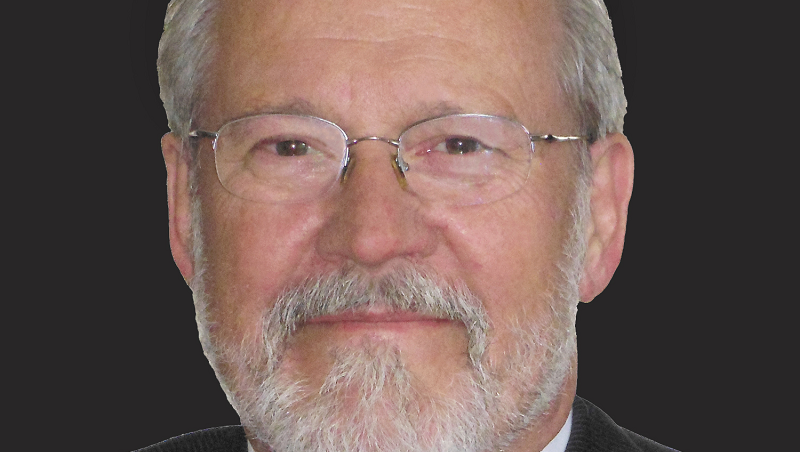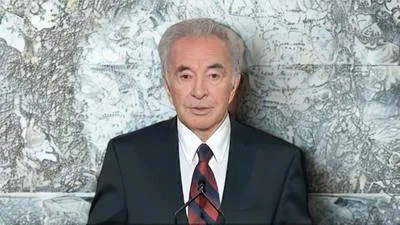I thought that faith was on the way out, but along comes government with a report on 'unexplained aerial phenomena' or UAPs (aka 'unidentified flying objects'). Why the name change? Maybe our officials don’t want us to think of extraterrestrials when we see something strange in the sky… or it could be some 'brander' thought it time to update the 1940s appellation for things that hover above us.
Personally, I don't care what we call them as long as we don’t sweep these sightings behind the government's information iron curtain. Back in the fifties I read about "Project Blue Book" (the code name given to the U.S. Air Force' study on UFOs). When the project was terminated in 1969, the USAF summarized its findings: "No UFO reported, investigated, and evaluated by the Air Force was ever an indication of threat to our national security; there was no evidence submitted to or discovered by the Air Force that sightings categorized as "unidentified" represented technological developments or principles beyond the range of modern scientific knowledge; and there was no evidence indicating that sightings categorized as "unidentified" were extraterrestrial vehicles."
Since 1969, there have been numerous sightings by credible military and civilian pilots that corroborate these encounters with objects that fly in defiance of our understanding of aeronautics and physics. And these sightings are increasing, dramatically. According to the Rasmussen organization: "More than one-in-five Americans say they or someone they know has seen an unidentified flying object (UFO), and a majority think the government may be covering up the truth about UFOs." Their latest national telephone and online survey finds that 22% of American Adults say they or someone they know has seen a UFO – slightly up from 19% two years ago – while 66% say no one they know has ever seen one, and another 12% aren’t sure.
Two years ago, the Director of National Intelligence released a report entitled: "Preliminary Assessment: Unidentified Aerial Phenomena." Prior to its publication, the Pew Research Center released its study that stated that 65% of Americans say that they think there is intelligent life on other planets and the majority believes that UAPs present no threat to our national security. Seems we are approaching a general acceptance that we are not alone. While aliens are moving closer to the realm of believability and gentrification, Christendom is struggling to hang on to its followers. It's now easier to believe in little green men than in an all-powerful, all-knowing, all-loving God. Christianity is more than a belief; it is recorded history, but its history and recording of it have always been in dispute by doubting Thomases, but Christians have continued to practice their religion despite it. So far, aliens have not passed on their version of the Bible to us, nor have they taken out ads declaring their existence. We're expected to believe they exist on some evidence and faith.
Believing the unexplainable has always presented a problem and is part of the human condition, It's wrapped up in our human senses, but complicated by our brain which weighs the sensory evidence and then factors in an element of doubt and ultimately reaches a conclusion based on a perception of threat to our survival. Anything that threatens our survivability is treated seriously. The same is true of organized religion or organized anything. Over time, we have become more skeptical of people and institutions… and especially of those who govern us.
Christ said, "I am the way, and the truth and the life." (John 14:6). Does that cover all extraterrestrial life (if it exists), and if aliens are just another 'tribe' of God-created life, then shouldn’t they be subject to Jesus' words, too? Obviously, this is a question for all of us, and if the existence of other life-forms can be proven it will present a very fundamental question about the power and relevance of faith. After all, how can we justify having faith in extraterrestrials but not in God the Father of Jesus Christ? Can we live with a duality of belief in some things but not others? If we have that ultimate encounter with aliens will we become less skeptical and move closer to God or farther away, citing science as the justification? The answer may be in the stars.
Stephan Helgesen is a retired career U.S. diplomat who lived and worked in 30 countries for 25 years during the Reagan, G.H.W. Bush, Clinton, and G.W. Bush Administrations. He is the author of thirteen books, six of which are on American politics and has written over 1,300 articles on politics, economics and social trends. He operates a political news story aggregator website, www.projectpushback.com. He can be reached at: stephan@stephanhelgesen.com







